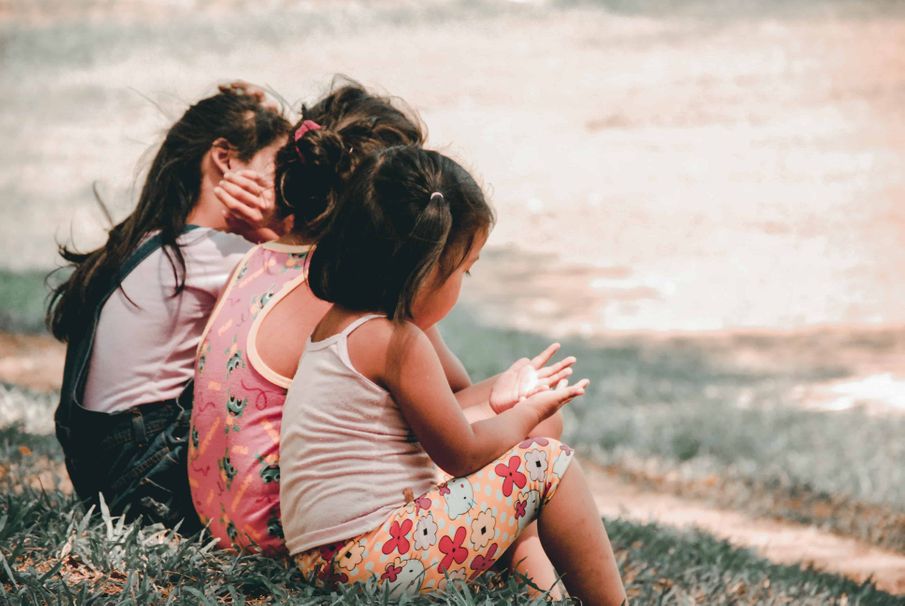New report reveals over 55,800 children have not been accepted into specialist mental health treatment between 2017/18
A new report by the Education Policy Institute (EPI) has assessed the state of children’s mental health services (CAMHS) in England. Examining access to specialist services, waiting times for treatment, and provision for children who are not able to receive treatment, the report, released on 7 October, released startling new figures.
Over the past five years, demand for children’s services has increased significantly. The number of referrals to specialist CAMHS in England has risen by 26%, despite a population increase of only 3% during the same period. Experts worry that this substantial increase may have put children’s services under increasing strain.
The number of children and young people rejected for specialist mental health support has not seen any significant or substantial improvement over the past five years, reports reveal, with over 55,800 (almost one in four) children not accepted into treatment between 2017 and 2018, the Education Policy Institute report estimates. True figures are thought to be higher, as a number of service providers did not disclose referral numbers.
Our new children's mental health services report finds:
— Education Policy (@EduPolicyInst) October 8, 2018
- Referrals increase by 26% over 5 years
- 1 in 4 unable to access treatment
- A quarter of LAs have reduced support
- Treatment waiting times are down, yet disparities remain
Full report: https://t.co/DvQvztEKHg#CAMHS
The report, authored by senior researcher Whitney Crenna-Jennings, Senior Researcher in Mental Health, Wellbeing and Inclusion, and Jo Hutchinson, Director for Social Mobility and Vulnerable Learners, revealed that the most common reason for children being referred to be rejected was that their mental health conditions were ‘not serious enough’ to meet eligibility criteria for treatment. Those excluded by this criteria included young people who have self-harmed, as well as those who have experienced abuse.
For the almost 25% of children whose referrals are rejected, few providers follow-up with them to monitor the outcomes or offer further support. The outcomes for these young people are often unknown, the report reveals, as there is no consensus as to who is responsible for supporting them. Across many areas of the country, there are few alternative services for those who have not been accepted for treatment, with as many as 25% of local authorities having phased out vital support services including school-based mental health services, family counselling, and support for those living with domestic abuse.
For the children and young people whose referrals are accepted by specialist services, many face lengthy wait times before treatment can begin. Between 2017 and 2018, the average median wait for children was 34 days for an initial assessment, followed by 60 days before receiving treatment. While the overall average wait time has been stable over recent years (with slight improvements to the longest wait times), the disparities between providers can be huge.
Across England, CAMHS wait times range from as long as 188 days, to just one day. A child in London can expect to wait for the longest for specialist help (64 days), while young people across the south have the shortest average wait (58 days). The current wait times as a whole fail to meet the government’s new standard four-week target, as set out in its green paper on children’s mental health, with average wait times twice as long as the proposed standard.
Despite the numerous concerns raised by the EPI’s latest findings, concern has been raised at the numerous loopholes in the current system for reporting and disclosing data for CAMHS in England. Despite information being requested under the Freedom of Information law, the EPI found that many CAMHS providers did not provide basic information on access to services, while privatised service provision posed further transparency problems as these independent providers are exempt from the Freedom of Information Act.
Alongside findings released, the EPI report expressed concerns that there may be a risk of service providers ‘gaming’ the system. In order to decrease waiting time standards from some providers, there is concern that the threshold for securing treatment may be raised by providers to meet new standard shorter wait times, further denying children access to vital support. Through their report, Crenna-Jennings and Hutchinson have called for broader, consistent government accountability measures for reporting data on CAMHS, including clearer definitions for who is eligible for treatment.
In response to the Education Policy Institute’s findings, Barnardo’s Chief Executive, Javed Kahn, said:
“This disturbing report shows how urgent action must be taken to stop us sleepwalking ever further into a children’s mental health crisis. These shocking figures reveal the number of referrals to specialist children and adolescent mental health services (CAMHS) has increased by 26.3 per cent over the last five years.
“During the last financial year, a fifth of the referrals got rejected. In some parts of the country, the pressure on resources is so severe that only the most extreme cases receive help. We have first-hand experience working with thousands of children through our mental health services and know the earlier children get support, the best chance they have for recovery.”
These findings come just months after the announcement of new government plans to make mental health education compulsory in schools, as well as to offer mental health support teams stationed in trailblazing schools from late 2019. Despite an initially positive reception, experts and mental health campaigners expressed concern that not enough children would see the benefits of planned changes over the next five years, leaving thousands still vulnerable and denied treatment.
New, shorter wait times have been called ‘not good enough’ by charities and experts, who say children should be seen in days, not weeks. CAMHS Scotland have continued to fail to meet 18 week referral times across 11 out of 14 NHS boards, with nearly 30% of Scottish children being offered no help or support during the referral process.
For more information on children's mental health and to find a counsellor near you, visit Counselling Directory.


Comments